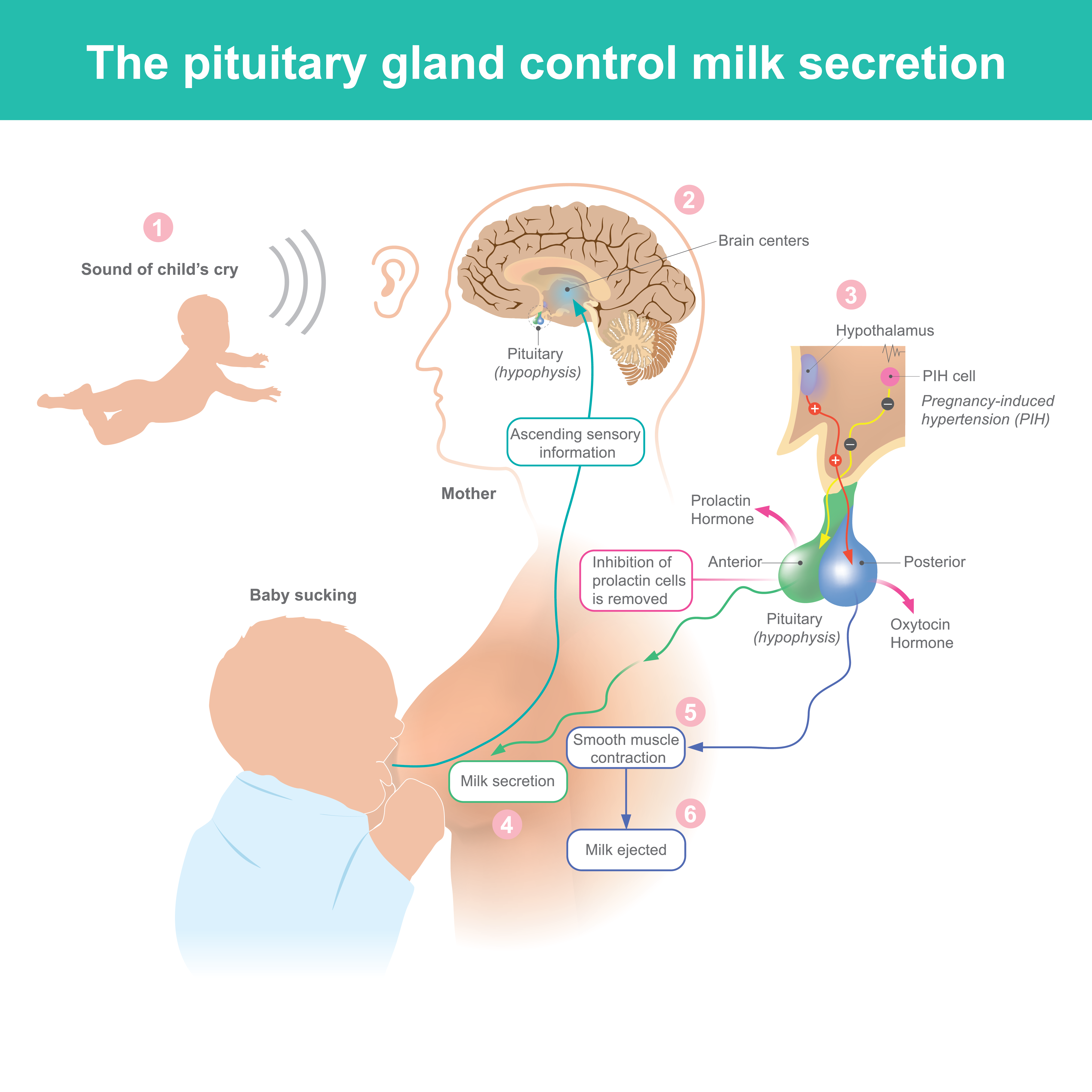
Breastfeeding: Pros, Cons, Reminders and Recommendations
Having a baby and being a mother comes with many responsibilities and things to consider. One of which is what to feed your child, or whether breastfeeding them or not, or what is the pros and cons of breastfeeding?

Breastfeeding is the act of feeding a child human breast milk. This can be done directly from the breasts to the mouth of the child, or through bottle-feeding, by pumping milk from the breasts and feeding the child using a baby bottle.
The World Health Organization (WHO) recommends breast milk as the infant’s main food source, as this gives them all of the proper nutrition that they need. However, nutrition is not the only factor when it comes to feeding your child, so it is better to know all of the factors, the pros and cons of breastfeeding, before deciding what and how to feed your child.
Pros of breastfeeding
Most optimal food for the baby
Doctors recommend breast milk as the most nutritious food for infants and babies. At the end period of pregnancy, or right after giving birth, the mother produces the first form of milk known as colostrum, a yellowish and thick substance that contains nutrition that will help the baby’s immune system.
Breast milk is the most optimal food source for an infant, as it contains the vitamins, enzymes, and amino acids (the building blocks of proteins) that the baby needs in order to grow strong and healthy. When the baby breastfeeds from the mother, saliva from the baby’s mouth reacts with the mother’s nipples, which then sends signals to the mother’s brain to produce milk with the nutrients that the baby needs. This may help lessen the risk of the baby having:
- Ear infections
- Sudden infant death syndrome (SIDS)
- Eczema
- Colds and infections, particularly respiratory infections
- Diarrhea, vomiting and stomach problems
- Necrotizing enterocolitis (NEC), a stomach disease that typically affects premature babies, and can be potentially fatal.
Breast milk also helps support the child’s cognitive development and intelligence.
Easier to digest for child
Breast milk is produced specifically for the baby’s consumption, thus making it easier for the baby to digest. This helps prevent the baby from having colic or a gassy stomach. Because breast milk is easier for the baby to digest, bowel movement is less smelly, less irritating to the baby’s skin thus reducing the likelihood of the baby developing a diaper rash, and lessens the chance of having diarrhea.
Longterm health benefits
Aside from giving the baby the proper nutrition it needs to stay healthy and grow strong, breast milk also has longterm benefits for the child, reducing the risk of:
- Type 1 and 2 diabetes
- Childhood leukemia and other types of cancer
- Obesity
- Heart disease
- High cholesterol
Bonding between mother and child
Breastfeeding is also a good time for the mother and child to bond. This allows the mother to better soothe the baby when they are crying or distressed. Breastfeeding also helps the mother relax, as the brain produces the “feel-good” hormone known as oxytocin.
Cost-efficient
Breast milk is naturally produced by the body, which means it won’t cost a dime. According to the US General Surgeon, the average cost of what parents spend during the baby’s first year, to buy baby formula, ranges between $1,200 to $1,500.
Less work
Breastfeeding takes less work, as there is no need to go out to buy it, heat or cool, and as always, for most cases, is readily available.
Healthy for the mother
Aside from the health benefits for the child, breastfeeding also has health benefits for the mother:
- Continues breastfeeding lactational amenorrhea, or the halt of menstruation. This also helps prevent iron deficiency after giving birth.
- Lowers the risk of cancers such as ovarian cancer, breast cancer, as well as diseases like diabetes and heart disease.
- Burns extra calories
- Helps speed up the healing process of the uterus
Cons of breastfeeding
Pain and discomfort
Breastfeeding can be a painful process, especially at the beginning of the first few weeks. Breastfeeding may also lead to painful or cracked nipples, which may potentially lead to a severe breast infection such as mastitis. Be sure to consult a doctor if you start feeling severe pain or if you notice any swelling or bruising of the nipples.
Amount of breast milk produced may vary
The amount of breast milk produced may sometimes be too much or too little. You also won’t be able to measure the amount of milk that your baby consumes, unless you use a pump and feed your baby using a baby bottle.
Lack of physical mobility
When breastfeeding, you will be carrying your child, which may hinder your physical mobility, making it harder to move and do other activities.
Difficult to do in public
Not all women feel comfortable breastfeeding in public, and not all public spaces are breastfeeding-friendly. This may be a con to some women. Breastfeeding may also make it a difficulty to travel, as you’d have to constantly have your child with you, or store enough breast milk for the child to consume.
Not all women can breastfeed
There are some factors that may affect a woman’s ability to breastfeed:
- If you have human immunodeficiency virus (HIV), as the mother may pass the virus to the child. Women with hepatitis C and or cytomegalovirus should also be careful, as they may also pass on the virus if they have cracked or sore nipples.
- If you are undergoing or are in need to undergo radiation treatment, then breastfeeding may not be an option, as the radiation may pose health risks for the child.
- If you are under medication, especially antithyroid medication, chemotherapeutic agents, and some mood-altering drugs, as it may also be harmful for your child. Consult your doctor before breastfeeding, if you are under any sort of medication.
Requires healthy lifestyle choices
Whatever you consume, whether it be healthy nutrients or harmful chemicals, may be consumed by your child as well when breastfeeding, so it is highly recommended to live a healthy lifestyle. As much as possible, eat a well-balanced diet complete with protein, fruits and vegetables, and avoid drugs, smoking, alcohol, and other vices that may be bad for you and your child’s health.
Reminders and recommendations
Though breastfeeding is highly recommended, consider all the factors and do not feel ashamed or afraid if you are unable to breastfeed your child. There are many baby formulas available in the market that can give your child the nutrition that they need.
Exclusive breastfeeding is recommended by the WHO until the child is 6 months old. After 6 months, you may continue to breastfeed, along with appropriate complementary food or baby formula, for up to 2 years old and above.
It is recommended to breastfeed the child for up to 12 months. Children below 12 months should not drink regular cows milk; they can be given baby formula if breast milk is insufficient or unavailable.
If direct breastfeeding is not an option, or if the mother produces too much breast milk, you may use a pump to store breast milk for later consumption. Store breast milk in a BPA-free container, in the refrigerator. The optimal time of storage in the refrigerator is up to 3 days, however, you may deep-freeze the breast milk, which will then last up to 12 months. Do not that research suggests that the longer you store breast milk, the greater the loss of vitamin C.
If breastfeeding is not an option, be sure to choose a baby formula that is appropriate for your child’s age, and has the proper nutrition that your child needs.
